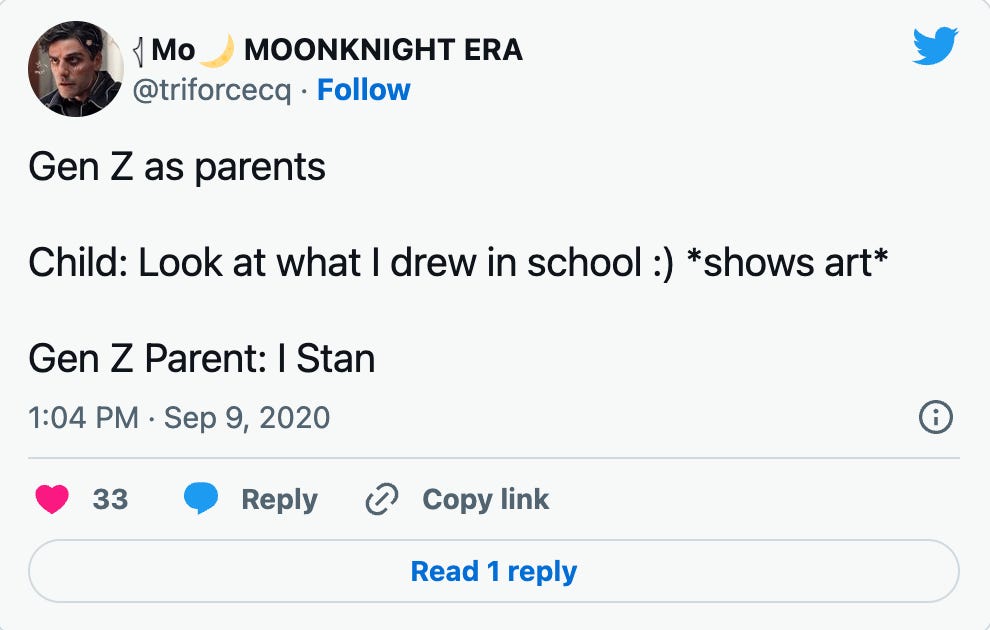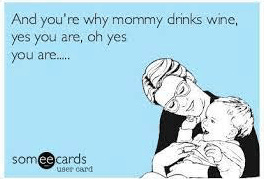Gen Z are having Babies
Gen Z are having babies. Feel old yet? Discover how Gen Z parents are changing the narrative around raising children in the first of our new series looking into the modern family.
Here’s a fun fact that is definitely not going to make you feel old at all: Gen Z are having babies. That’s right, the kids are getting themselves knocked up. Technically speaking, they’re no longer “kids”; the oldest are just about pushing 30, and some are even starting their own families - where does the time go, eh?
In the first of our series, looking into Gen Z parents, we will look at some of the significant shifts in attitudes, motivators and challenges that this youngest cohort of parents is facing. Gen Z is renowned for being change-makers, changing how we work (hybrid), how we look after ourselves (mentally and physically), how we shop (sustainably), and you better believe they’re changing the rules when it comes to parenting. Members of Gen Z are increasingly becoming parents and it is predicted that by 2060 there will be 17 million Gen Z mothers globally.
Kylie Jenner’s ‘To Our Daughter’ video racked up 106 million views on Youtube.
The Death of the Insta-Mum
One of the most noticeable shifts we’re seeing is a move away from the pastel-hued curation of the Millennial Insta-mums, with their gender reveal parties and surprisingly vomit-free depiction of motherhood. Instead, with Gen Z, we see something altogether more real. Maia Knight shares honest and often frazzled videos of herself and her young twins to her 8.4 million followers, babies under her arms and the tell-tale signs of a lack of sleep under her eyes. The hashtag #momlife, which has 102 billion views on Tiktok, pokes fun at the good intentions mothers had before they had children or videos highlighting the challenges or difficulties of motherhood - often with a distinct dry humour that Gen Z is known for.
 Tiktok failed to load.
Tiktok failed to load.Enable 3rd party cookies or use another browser
Tiktok creator Maia Knight’s less than perfect depiction of single parenthood
Parenthood as new layer of identity
Gen Z, like Millennials, are starting parenthood later in life as a result of pursuing higher education, financial instability, and broader changes in social attitudes towards marriage and children. Younger generations are having fewer children as well, sticking to one or two where previous generations had four or five (So that if you lose one to Victorian wasting disease, you still have a few left to till the feudal land etc etc).
There is a whole swathe of content both on and offline around the idea that women are driven to drink because of their children.
It seems as though the decision to start a family is more intentional rather than presupposed, resulting in a feeling of optimism around young people’s identities as parents. According to a global report on Gen Z parents from Virtue, Gen Z views parenthood as a ‘compliment - not a compromise - to their identity’. The not-so-subtle references to needing “mummy juice” to survive the woes of early parenthood are falling away as young people take more of an active role in the decision to start a family.
How to Win with Gen Z parents
Gen Z is a generation that continues to push against societal norms, transforming every aspect of life, and parenthood is no exception. The youngest cohort of parents is bringing a unique perspective to the table, with a move towards realness and authenticity in how they portray parenthood. As Gen Z continues to navigate the challenges of starting a family, brands will have to play a supporting role in their lives. Some considerations for how to win with Gen Z parents:
⊛ Authenticity is key: Gen Z parents value realness and transparency. Avoid overly curated or staged depictions of parenthood that will alienate younger parents and instead depict parenting as it is; the highs and lows.
⊛ Focus on inclusivity: Gen Z are the most diverse cohort yet and values authentic representation of inclusivity; make sure to represent all types of families in your communications, including single parents, queer and blended families.
⊛ Prioritise Utility: Gen Z is digitally native and has high expectations when it comes to what they expect from tech; from sleep tracking to apps that help new parents understand feeding patterns, technology is helping parents every step of the way. Think how your brand can support parents above and beyond the product you’re offering.







